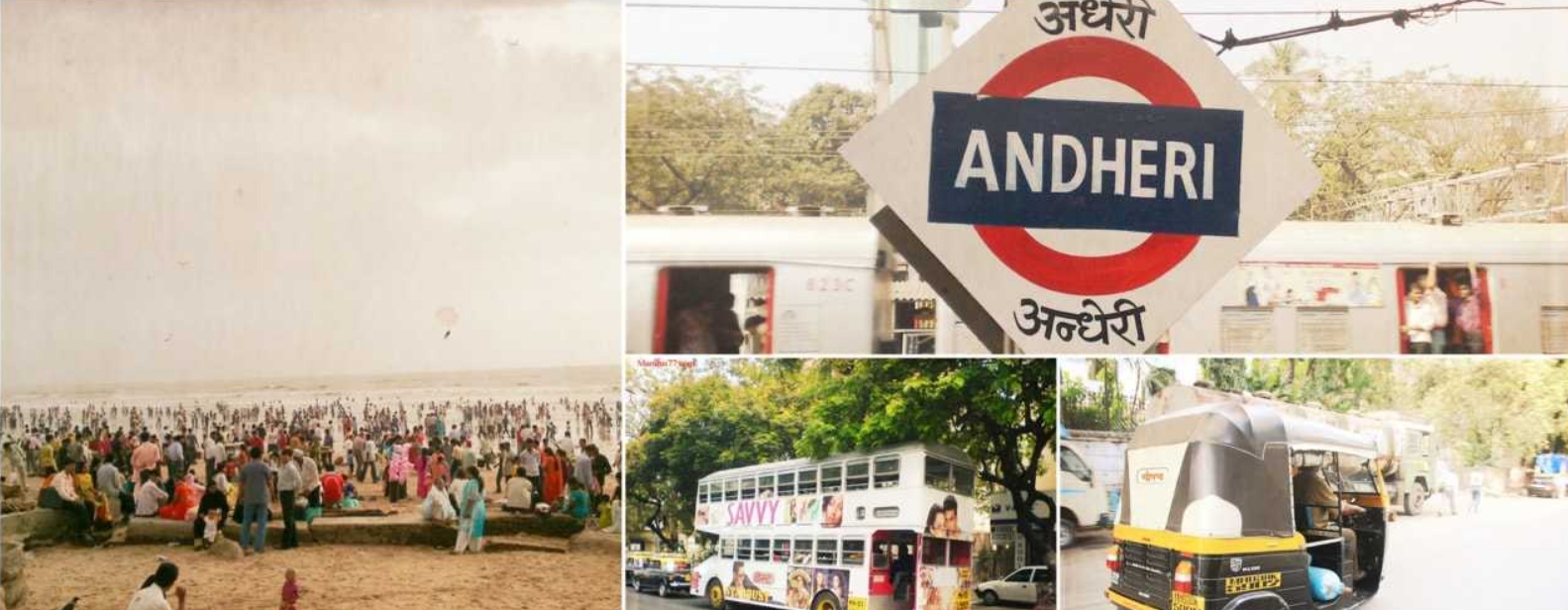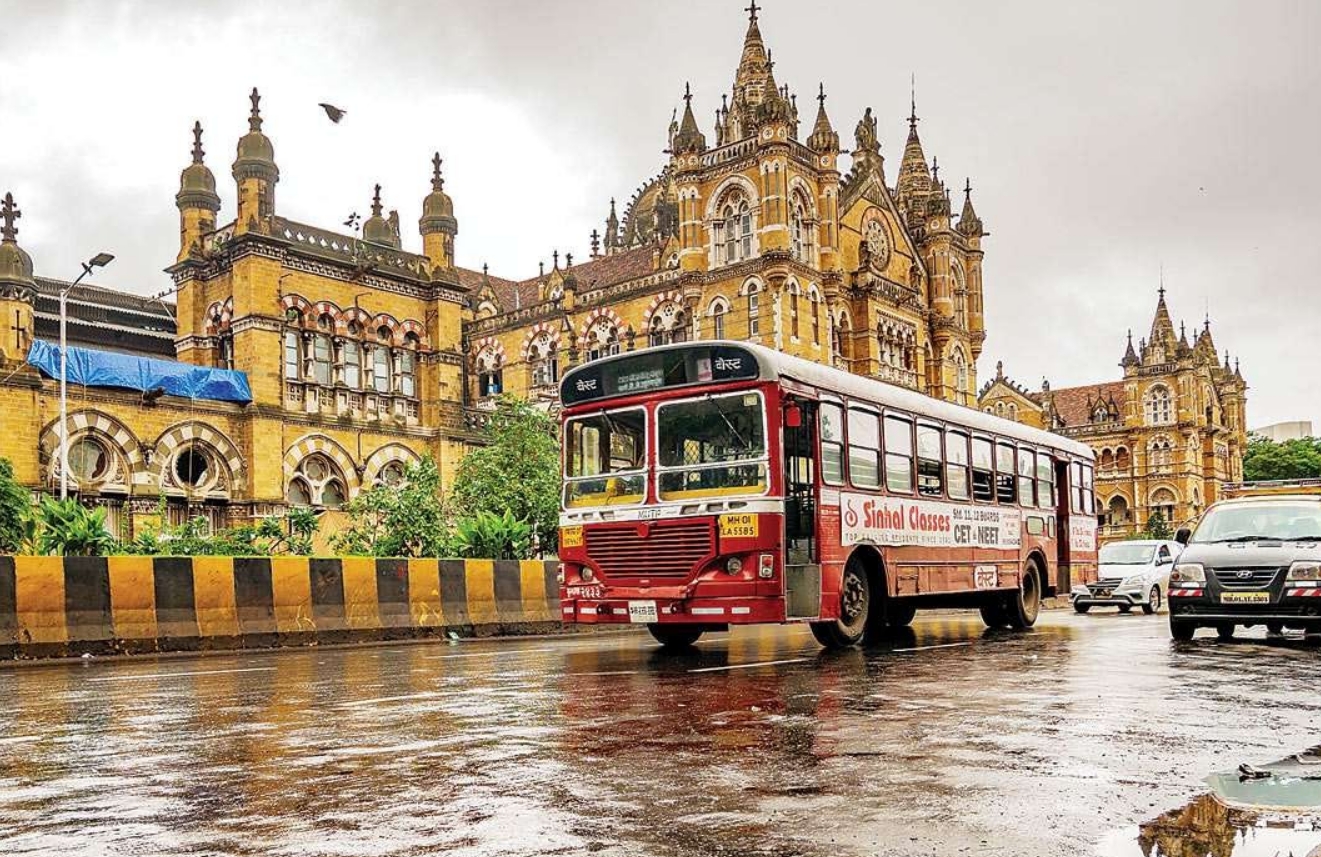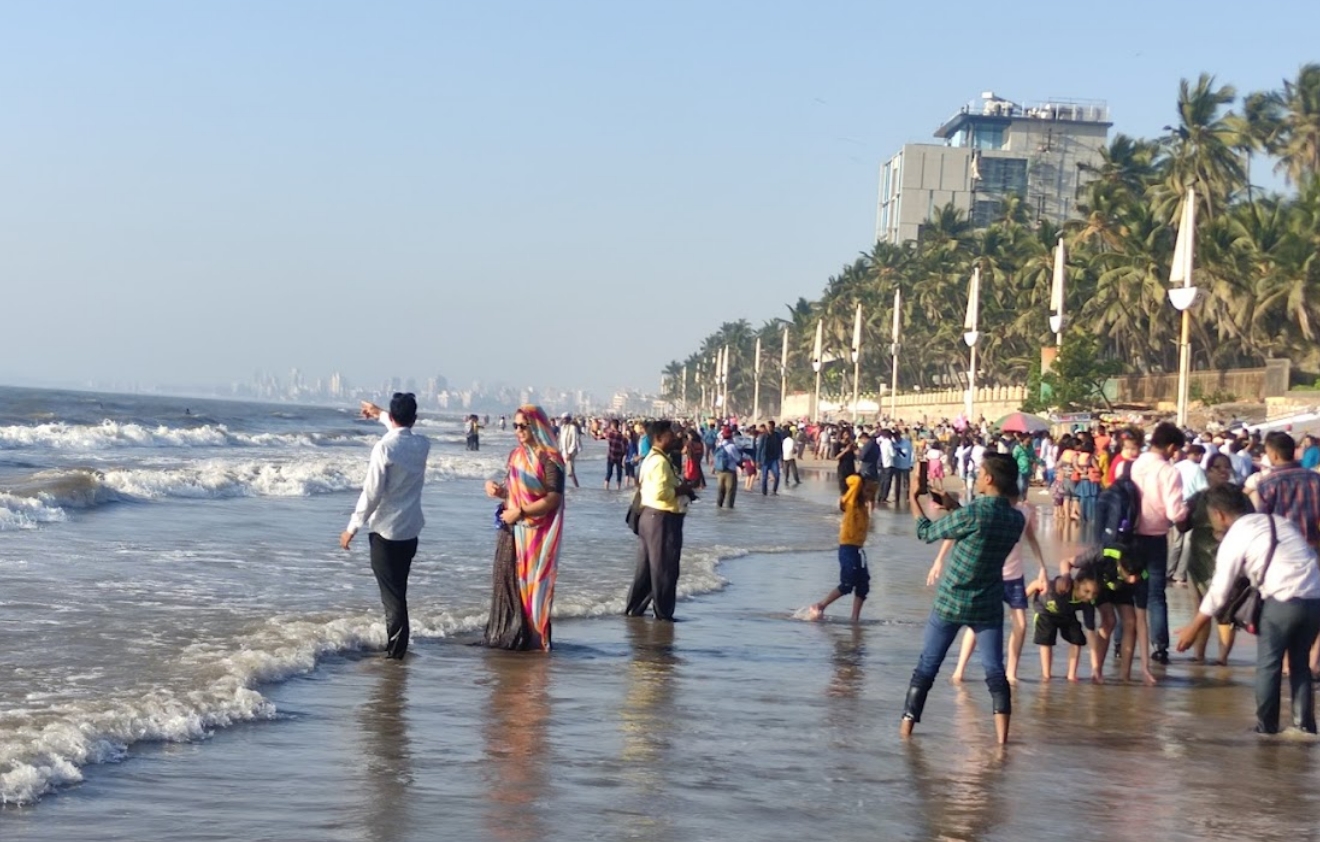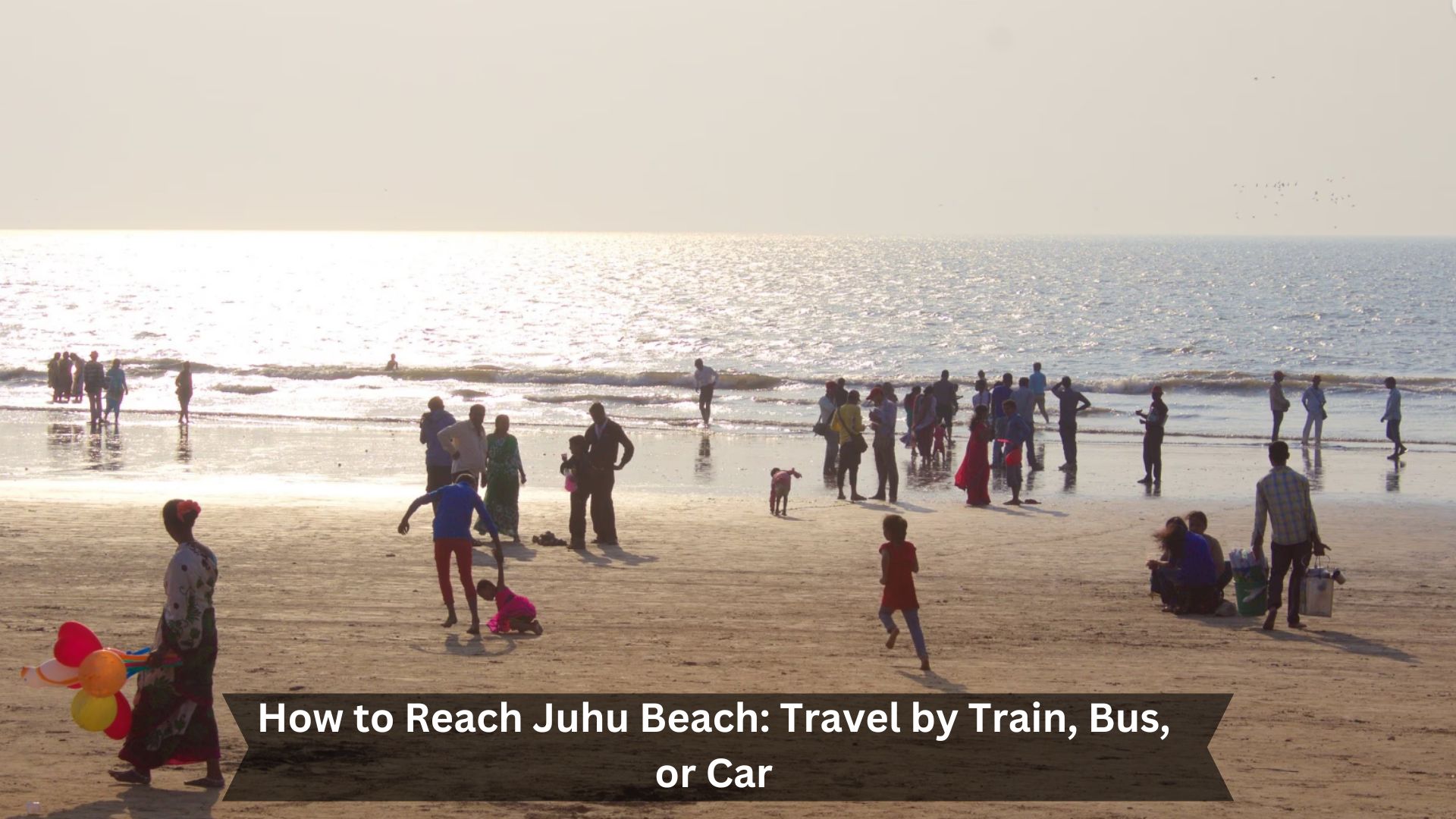| Category | Details |
|---|---|
| Location | Juhu, Mumbai, Maharashtra, India |
| Best Time to Visit | October to March (pleasant weather) |
| Opening Hours | Open 24 hours, but best visited during daylight |
| Entry Fee | Free |
| Main Attractions | Street food stalls, sunset views, ISKCON Temple nearby |
| Activities | Beach sports, camel/horse rides, photography |
| Food Options | Famous for Pav Bhaji, Pani Puri, and Bhel Puri |
| Shopping | Local stalls selling souvenirs and accessories |
| Nearest Airport | Chhatrapati Shivaji International Airport (6-7 km) |
| Nearest Railway | Vile Parle or Santacruz Station (Western Line) |
| Transport Options | Train, Bus, Auto-Rickshaw, Taxi, Private Car |
| Nearby Attractions | ISKCON Temple, Prithvi Theatre, Versova Beach |
Juhu Beach in Mumbai is a popular spot for both locals and tourists. It’s well-known for its beautiful sunsets and lively street food stalls. If you’re considering visiting, it’s worth knowing what draws people to this place. First, the sunsets at Juhu Beach are genuinely calming. After a busy day, watching the sun dip below the horizon can really help you relax. It’s simple but stunning. Then, there’s the street food. You’ll find all kinds of snacks here. From spicy chaat to sweet kulfi, there’s something for everyone. It’s a fun way to try different local flavors.
Why Visit Juhu Beach?
Juhu Beach, located along the Arabian Sea in Mumbai, is a favorite spot for many. It’s a vast sandy beach that offers a quiet escape from the busy city. People love coming here to watch the stunning sunsets, which light up the sky in shades of orange and pink. The beach is also a place where you can experience cultural events and live shows, making it lively and fun.
It’s easy to get to and enjoys nice weather all year round, adding more reasons to check it out. Whether you’re up for a relaxing walk, flying kites, or tasting local snacks, Juhu Beach has something for everyone. It’s an excellent place for locals and visitors to make unforgettable memories.
Juhu Beach Attractions
Juhu Beach is more than just its natural beauty. It’s full of life, hosting street performers like acrobats and musicians that make your visit lively.
Families will find plenty of playgrounds; if you love sports, there’s volleyball and cricket, too. For food lovers, don’t miss out on the local treats like bhelpuri and pav bhaji. There are also cultural festivals that show off Mumbai’s diversity.
See Also – How To Reach Manali: The Ultimate Traveler’s Guide
How to Reach Juhu Beach by Train
Nearest Railway Stations

Taking the train to Juhu Beach is a wise choice. Several train lines connect it. The closest stations are Vile Parle, Andheri, and Santa Cruz on the Western Line of the Mumbai Suburban Railway. They’re only about 3 to 4 kilometers from the beach. So, it’s easy and quick. You can grab an auto-rickshaw or a cab from these stations, and you’ll be at the beach in no time.
Also, there’s the DN Nagar station on the Mumbai Metro Line 1. This gives you another good option for getting there. These stations help you get to Juhu Beach quickly and connect you to other parts of Mumbai.
How to Reach Juhu Beach

Want to visit Juhu Beach in Mumbai? It’s easy to get there. You can train to Vile Parle, Santacruz, or Andheri stations. They’re all close to the beach. Hop into an auto-rickshaw or catch a local bus to Juhu Beach from any of these stations.
If you’re driving, Juhu connects well with the rest of Mumbai via the Western Express Highway. It’s straightforward to drive there. Also, numerous city buses go to or near Juhu Beach. Public transport is a good choice if you prefer not to drive.
Here’s a compact table for transportation options to Juhu Beach:
| Mode | Route/Details | Approx. Time | Remarks |
|---|---|---|---|
| Train | Vile Parle/Santacruz → Auto/Taxi (3-5 km) | 45-60 min | Best during non-peak hours |
| Bus | BEST Buses: 231, 79, 83 | 1-1.5 hours | Budget-friendly option |
| Auto-Rickshaw | From Vile Parle/Andheri Stations | 15-30 min | Short ride; cash preferred |
| Taxi/Ola/Uber | Via Western Express Highway | 45-90 min | Comfortable; fare varies |
| Private Car | Western Express/SV Road, parking nearby | 1-1.5 hours | Traffic common in evenings |
| From Airport | Mumbai Airport → Taxi (6-7 km) | 20-30 min | Convenient for air travelers |
| Walking | From nearby hotels or accommodations | 10-30 min | Ideal if staying in Juhu area |
Best Time to Visit Juhu Beach
Peak Tourist Seasons

If you want to make the most of your trip to Juhu Beach, picking the right season is critical. It shapes your whole experience.
The beach is busiest from November to February, when the weather is cool and everyone is festive. It gets especially crowded around New Year and the Makar Sankranti festival in January.
Read Also – How To Reach Khatu Shyam Temple: Best Travel Routes And Tips
Weather Considerations for Your Journey
Choosing the best time to visit Juhu Beach means knowing when the weather is good. Mumbai has three main seasons: summer, monsoon, and winter. From March to June, summers are sweltering and sticky, making it challenging to enjoy being outside.
Then the monsoon season hits from June to September. It rains a lot, which can keep you from enjoying the beach. But winter, from November to February, is perfect. It’s more relaxed and it hardly rains, making it the ideal time to go. If you visit during these months, you’re in for a great time, enjoying the beach’s beauty and lively vibe.
Conclusion
Juhu Beach is an excellent spot for both locals and tourists. You can get there by train, bus, or car. Each option has its benefits. It’s essential to consider what matters most to you — travel time, cost, or comfort. Also, consider the weather when you plan your trip. A well-planned trip can make your visit to Juhu Beach even better.
You’ll get to enjoy its lively vibe, beautiful views, and rich culture more comfortably. Remember, getting there is part of the fun. Choose the best way to travel to make your visit to Juhu Beach memorable.

Deepak Sharma is a passionate writer and avid traveler who specializes in uncovering the beauty and history of India’s attractions and temples. A graduate of Delhi University, Deepak has a deep-rooted love for his country and its rich cultural heritage.
